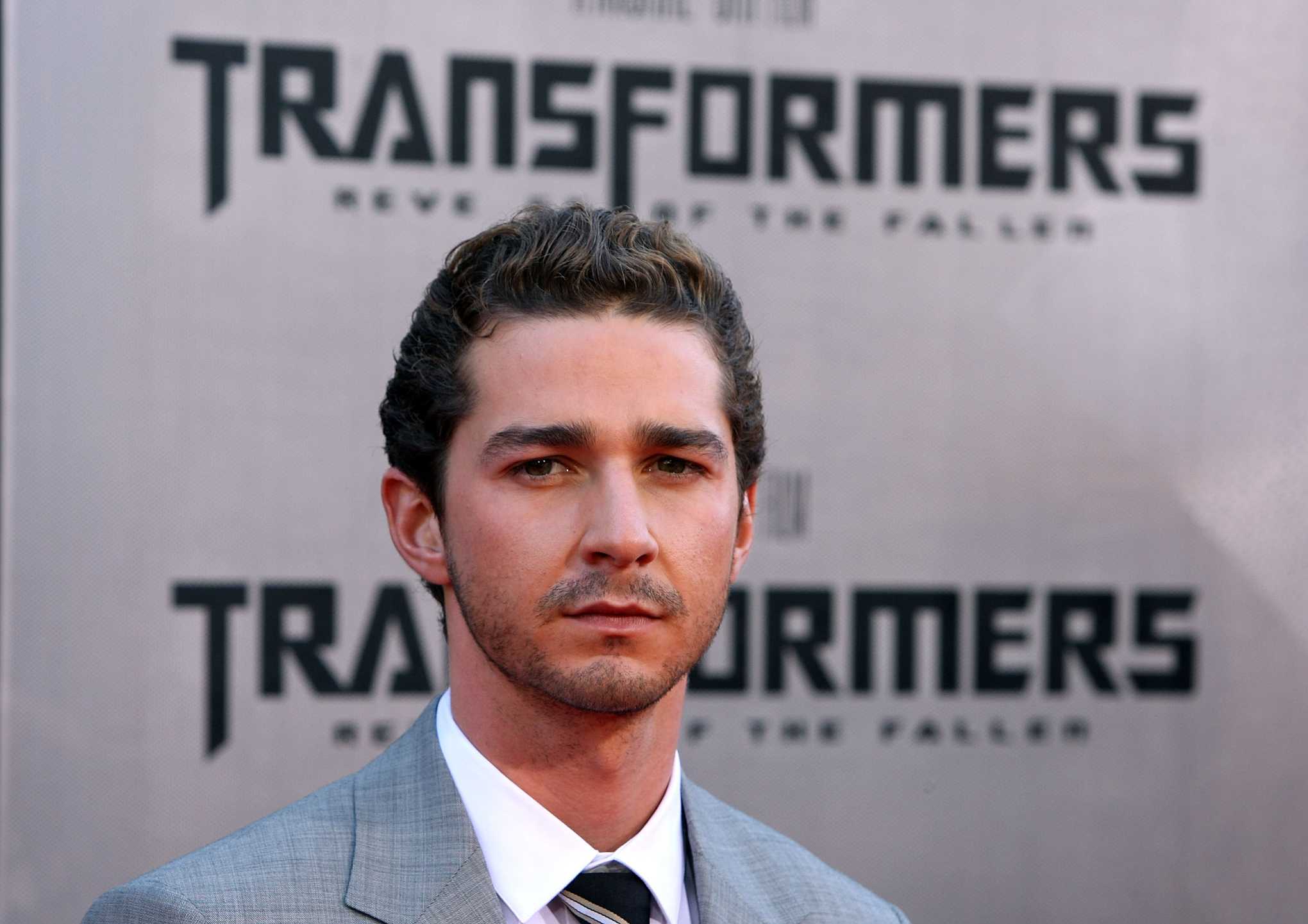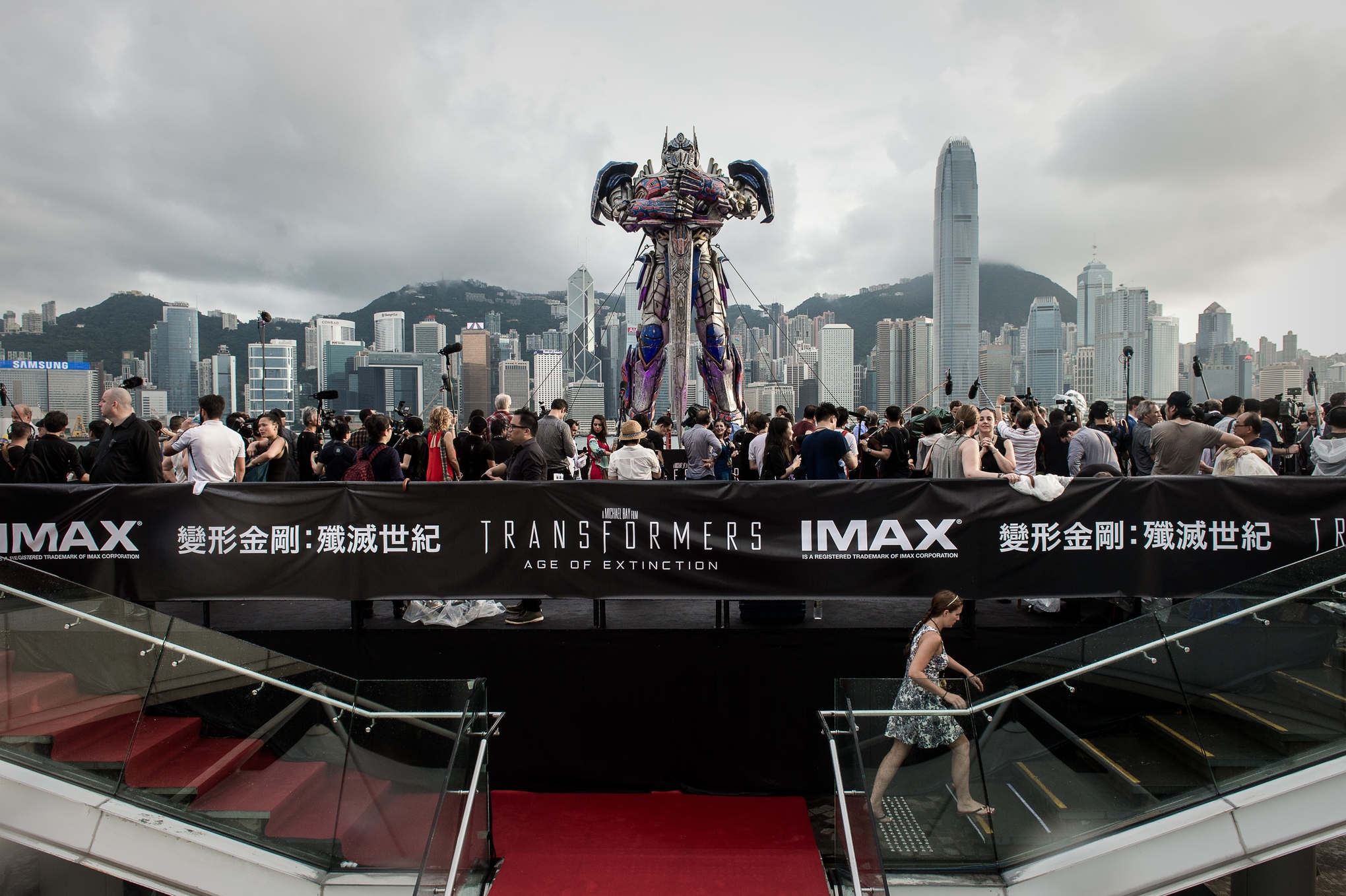/cdn.vox-cdn.com/uploads/chorus_image/image/35233264/134585500.0.jpg)
Transformers: Age of Extinction is the fourth Transformers movie made by Michael Bay, and it's inarguably one of the four best Transformers movies Michael Bay has ever made. Even so, a lot of "critics" seem to have misread the movie entirely. At the New York Times, A.O. Scott frets over the film's "narrative incoherence." At Salon, Andrew O'Hehir says the movie leaves us "measurably stupider than we were before."
These reviews miss the point so badly that you wonder whether they weren't written by Decepticons.
Transformers 4 is a master class in global economics. Over the course of 166 minutes — long for a film, sure, but short for a graduate-level econ seminar — Bay destroys economic shibboleths as if they were a major metropolitan area concealing the Autobots from Lockdown. His lessons are pitiless: inequality will keep rising, job security will keep falling, and American companies will contort themselves into all kinds of embarrassing positions to suck up to China.
And Michael Bay will keep making all of the money because he understands the changing economy much, much better than you do.
1. The real money is in owning machines

If I can take a truck’s job, you don’t think I can take your job? (Gustavo Caballero/Getty Images)
Transformers 4 made more than $300 million worldwide on its opening weekend — the biggest haul of any movie released in 2014.
But no one believes Transformers 4 had the best acting of any movie in 2014. And it sure as hell didn't have the best plot. What it did have is the most, and most beautiful, robots and explosions of any movie released in 2014 — and perhaps of any movie ever. Michael Bay isn't a genius at working with actors or scripts. He's a genius at working with computers.
In his book "Average Is Over," the economist Tyler Cowen writes that in the future, "workers more and more will come to be classified into two categories. The key questions will be: Are you good at working with intelligent machines or not? Are your skills a complement to the skills of the computer, or is the computer doing better without you?"
Bay's skills are a complement to the computer. Without Bay, the computers can't make a movie. Without the computers, Bay can't make his movies. Together, though, Bay and the computers can make billions of dollars — while directors who mainly know how to work with human actors struggle.
This holds beyond movies, too. The most profitable hedge funds amp computers up with algorithms that let them trade faster than human beings can blink. The world's leading manufacturers run plants where a few humans oversee miles of machines. As machines begin to make all the money, that money goes to the people who own or improve the work of the machines.
"If you and your skills are a complement to the computer, your wage and labor market prospects are likely to be cheery," writes Cowen. "If your skills do not complement the computer, you may want to address that mismatch."
2. Human workers are dispensable

Shia LaBeouf transformed into someone who is no longer necessary for these movies. (Frazer Harrison/Getty Images)
Remember Sam Witwicky? Of course you don't. I'm writing this in an incognito window on the computer of someone I hate, because if you even mention Sam Witwicky on the internet, Michael Bay will send an Autobot to destroy your house.
Sam Witwicky was the main human character of the first three movies. He was played by Shia LaBeouf, before Shia LaBeouf started getting arrested for slapping Alan Cumming's ass and fighting with homeless men. He doesn't appear in Transformers 4. He's not even mentioned in Transformers 4. Even Optimus Prime, who ended each of the previous movies pledging to protect Sam Witwicky forever, knows better than to utter his name.
Mark Wahlberg, the new human star of the movie, was asked in an interview what happened to Witwicky. His answer was almost sinister. "I don't think you really needed to [know what happened to him]. They just pick up with this new family. The guy goes out and finds this truck, and there you are. You're right back in it."
As the box office receipts show, he was right: when robots become the stars, the people who work with them become replaceable.
A different way of putting this is that as capital rises in importance, labor loses its bargaining power. You can see that happening in the economy in recent decades. Corporate profits have skyrocketed as advances in technology have allowed corporations to make more things and sell them to more people. At the same time, the share of the profits going to labor — to workers — has fallen, as this graph from the Atlantic's Derek Thompson shows:

That green line is what happened to Sam Witwicky. Michael Bay needs the computers necessary to make Optimus Prime. But those computers have made the individual actors a whole lot less necessary.
3. American companies will suck up to China

I’m kind of a big deal I’m in China. (PHILIPPE LOPEZ/AFP/Getty Images)
One reason that Transformers 4 is 166 minutes long is that it's really two movies: the first is Transformers 4, a film meant to dominate the American box office. The second is Transformers 4, a film meant to dominate the Chinese box office.
The last act of Transformers 4 takes place in Hong Kong and includes, for American audiences, some odd moments. There's a scene, for instance, where Stanley Tucci, playing a defense contractor with a recently rediscovered conscience, is being hunted through the streets of Hong Kong by Deceptacons and CIA assassins. He ends up having a momentary nervous breakdown in an elevator and spilling the whole story to a confused looking Chinese passenger who clearly can't understand him. Then, of course, the assassins arrive — and Tucci's co-passenger, who seemed like an extra, leaps out and kicks their asses.
The movie doesn't make a very big deal of this basically insane moment, and since this is a film about robots from space who can transform into trucks and helicopters but whose true forms all seem to track crude ethnic stereotypes, there's no reason for the audience to think about it for very — HOLY SHIT DID YOU SEE THAT THING EXPLODE? But the moment means more to Chinese audiences: the elevator rider is Zou Shiming, China's first Olympic gold medalist boxer, and he beats the hell out of a black-ops CIA operative. Go, China!
A bit later, the camera pans across Hong Kong to show the devastation caused by the supervillain's extremely large magnet (don't ask). It lingers on a convertible where a handsome Chinese passenger is strumming a guitar and singing softly. Once again, an odd scene to American audiences is a shout-out to Chinese audiences: that's Han Geng, a Chinese pop star/actor.
But the key to the Chinese box office isn't just the Chinese moviegoer. It's also the Chinese government. And so in a movie where the American government is represented by a sniveling White House chief of staff and a rogue CIA, China's leaders receive considerably more gentle treatment. When the fight moves east, the country's fictional defense minister grimly vows to scramble China's fighter jets to protect Hong Kong at all costs. His gaze is level, and his tone is determined: the moment isn't played for laughs.
The specificity of the promise — to protect "Hong Kong," as opposed to, say, all of China, or the world — sounds a bit odd. But that's because Bay went the extra mile on this one. He didn't just make the Chinese government look generically good; he made clear that Hong Kong, a British protectorate until 1997, was better off being part of China because it was under Beijing's protection. Take note, kids: that's how you suck up to China.
In recent decades, American companies have gone to China to find cheap labor. But that labor exists in Thailand and Malaysia and India as well. The Chinese government needed America's companies at least as much as America's companies needed China's workers. But that's changing. American companies increasingly want to sell to China's billion-plus potential consumers — and the only way to sell to them is to keep the Chinese government happy.
This manifests in different industries in different ways. You see it when Bloomberg News quashes stories that could compromise its ability to sell financial terminals in China. You see it when manufacturers open R&D centers in China because that's what the Chinese government demands.
Companies do all this because the rewards, increasingly, are huge. Transformers 4 set new records at the Chinese box office. Its opening weekend pulled in $97 million — almost equal to its US haul. The movie is so dominant that the Chinese government, despite Bay's efforts to butter it up, became concerned that it was displacing too many Chinese-made films. "About 50 days ago, Chinese movies accounted for 63 percent of the overall box office in China [in 2014]," said Zhang Hongsen, head of the Film Bureau at the State Administration of Press, Publication, Radio, Film and Television. "But after tonight, that will fall under 50 percent."
But ticket sales trump cultural pride. The LA Times reports that Chinese theaters are routinely reserving 60 or 70 percent of their screens for Bay's opus.
Which is, in a way, Transformers 4's ultimate lesson. Early in the film, Bay introduces the aging owner of an old theater. "Movies nowadays, that's the trouble," he says. "Junk, sequels and remakes, a bunch of crap." Mark Wahlberg ends up buying a truck from him and his grandson (who Wahlberg keeps calling "Snakeballs," for some reason) for $150. The truck that out to be Optimus Prime. One man's trash is another man's awesome robot that will set new box office records in China.
The economy doesn't care what the tastemakers think things are worth. It doesn't even care what the Chinese government thinks things are worth, at least assuming they don't block the product entirely. The market is the test that matters. And Bay has mastered it. There's a lot more to Transformers 4 than meets the eye.